Norway: Admitting asylum-seekers or paying other countries to do so ?
EU!RADIO, a dynamic not-for-profit radio station adopting a resolutely European perspective, as part of their weekly ‘Ideas on Europe’ editorial by UACES, the University Association for European Studies, has welcomed Pierre Van Wolleghem, Executive Scientific Coordinator of PROTECT to talk about the future of international refugee protection, more closely whether citizens from 26 different countries agree with the statement that all countries should collaborate to protect the world’s refugees.
Listen to the podcast and read the related blog piece, here.
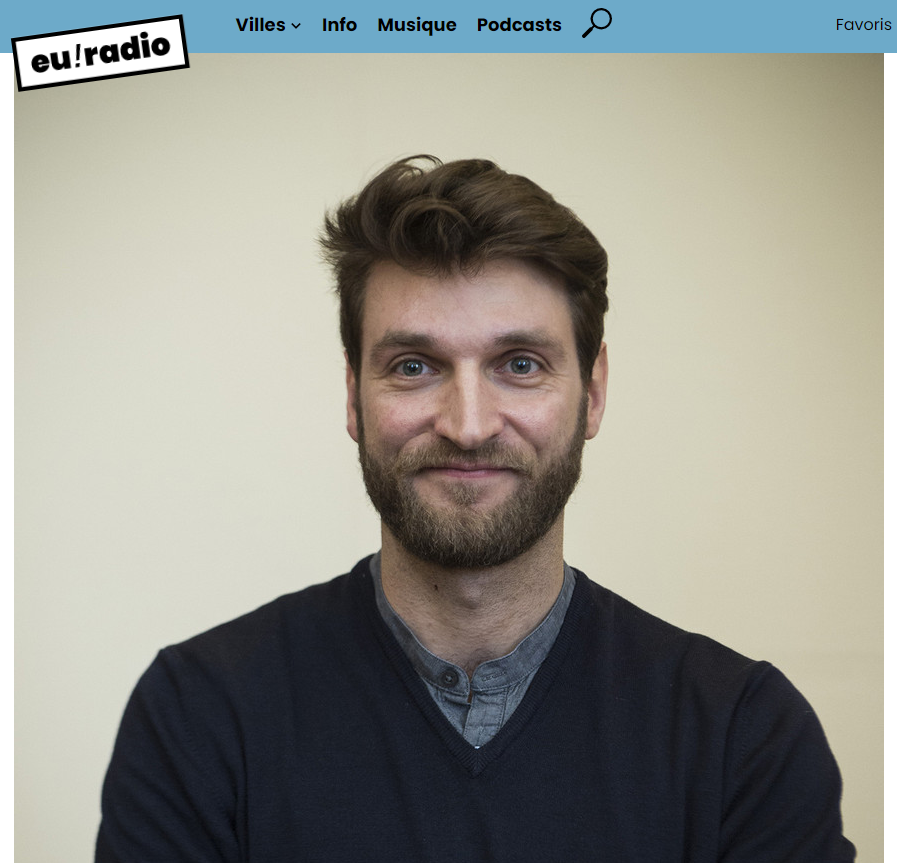
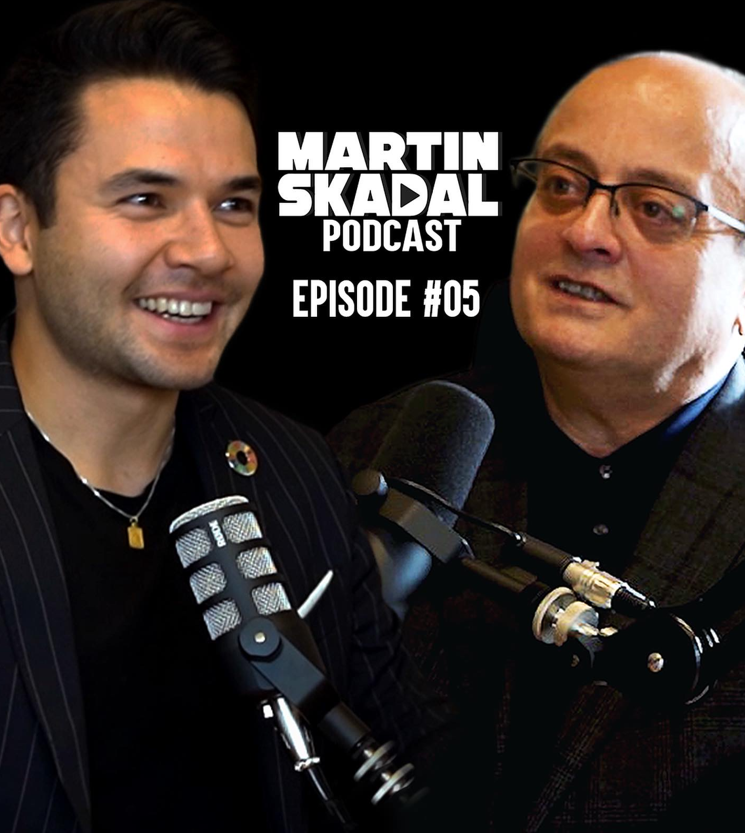
Norway: The refugee protection crisis & how to help refugees
Our project leader Hakan G. Sicakkan from the University of Bergen has participated in a new podcast series with Martin Skadal about environmentalism, animal rights and human rights – this time with a focus on migration and refugee protection. The main question was: how to make the international refugee protection system work fairly?
South Africa: Scapegoating migrants in SA undermines progress on healthcare for all
Jo Vearey from our Wits-team has contributed to the following opinion piece on the Daily Maverick in South Africa, focusing on the blaming of foreign nationals for a struggling public healthcare system.
The authors find that: “Blaming foreign nationals for a struggling public healthcare system serves as a convenient distraction from the real problems associated with service delivery. The suggestion that foreign nationals are the sole problem (and their removal is the sole solution) prevents us from understanding why the South African public healthcare system is struggling and what is needed to improve the quality of life for all in South Africa… These developments are dangerous for everyone in South Africa. They push the unsubstantiated idea that immigration is to blame for failures of the state to deliver services, for high crime rates and rising unemployment. They also provide fodder for growing anti-immigrant activism. Moreover, this distraction stops us from holding officials to account for the actions required to improve the delivery of services to the majority of the population — citizens and non-citizens alike — who are reliant on the public healthcare system. Ultimately, everyone loses: the scapegoating of migrants not only undermines progress towards quality healthcare for all, but also poses real risks to the health and wellbeing of everyone living in South Africa.”
The whole piece is available here.
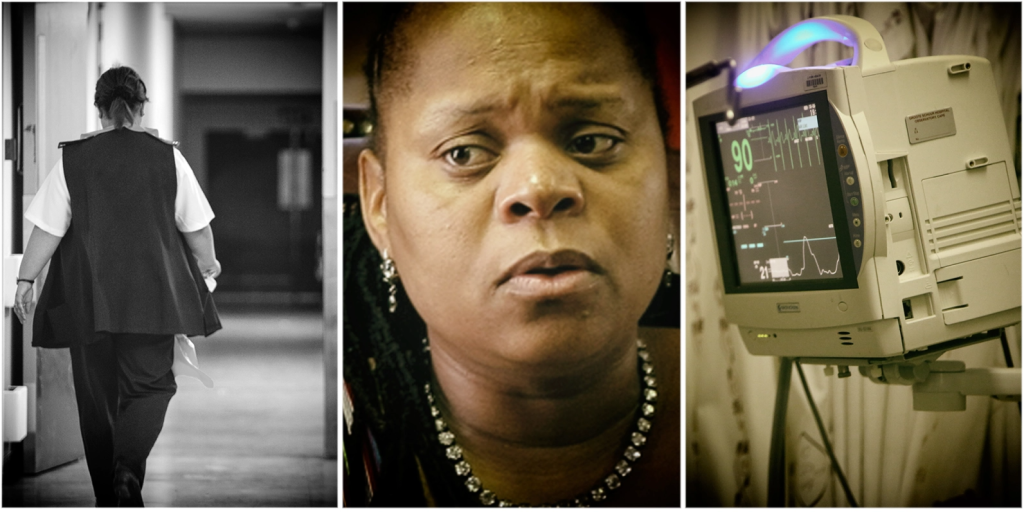
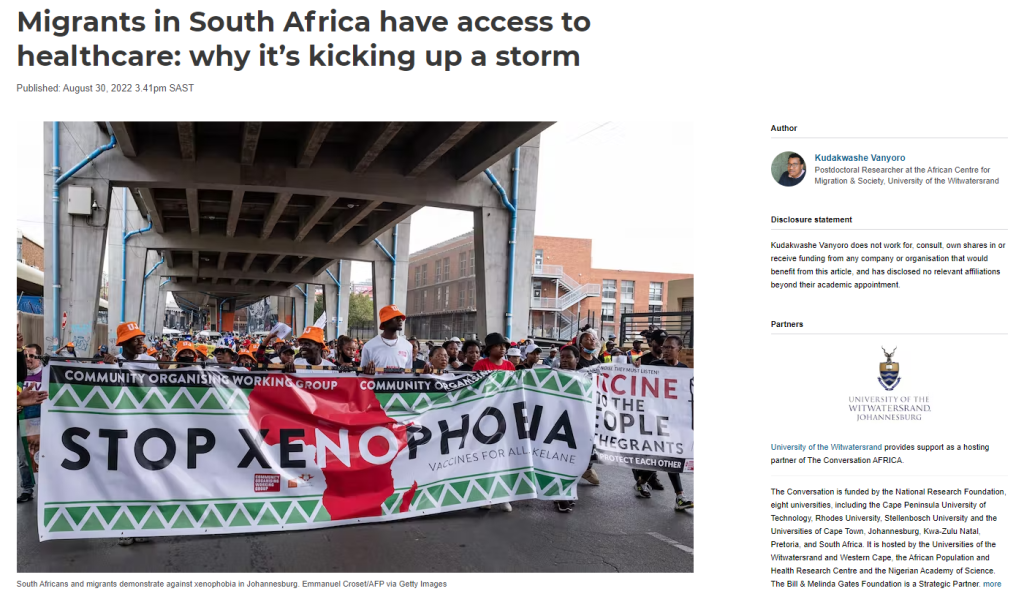
South Africa: Migrants in South Africa have access to healthcare: why it’s kicking up a storm
“A political storm has erupted in South Africa after a video went viral showing the health minister for the Limpopo province – which borders Zimbabwe – berating a Zimbabwean woman who was seeking healthcare. Responses have been divided. Some have called for Phophi Ramathuba to step down on the grounds that verbally abusing a patient was out of order. Others have supported her, saying she reflects the sentiments of South Africans living in the area.”
The Conversation Africa spoke to our researcher from the University of Witwatersrand, Kudakwashe Vanyoro, who has done research on the treatment of migrants in South Africa’s healthcare sector, to unpack the issue.
The whole piece is available here.
Norway: For four weeks, a group of migrants has been sent back and forth between Greece and Turkey. Who is the one responsible for that?
PROTECT’s project leader Hakan G. Sicakkan has been interviewed by journalist Sofie Grønntun Nissen from the Norwegian newspaper Aftenposten, about how refugees are used in a political game between Greece and Turkey.
“It is a well-known fact that Turkey uses refugees as political pressure and that Greece engages in push-back operations that lead to deaths”, says Hakan G. Sicakkan. He emphasizes that “this applies both to Greece specifically, but also to the EU as a whole”.
The whole piece, in Norwegian, is available here.
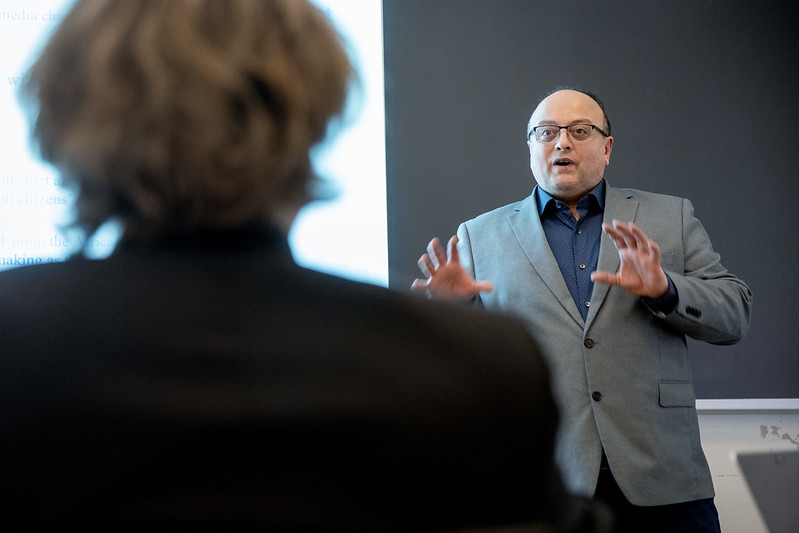

Belgium: Comparing today’s flight from Ukraine and the past
On 18th March, Frank Caestecker from Ghent University gave an interview to the national radio of Belgium (“Radio1”) regarding the current flight from Ukraine – in comparison to that of the past.
“The flight from Ukraine is exceptional in its numbers and composition. Already more than 3 million people left war-torn Ukraine, mostly children and women. A similar number of refugees fled from war-torn Syria to Turkey and Lebanon a few years ago. For Europe this is however exceptional: 200.000 fled from Hungary in 1956, but that was mostly young men. The war in Kosovo made 850.000 flee. However many of the latter war refugees returned home in September after the 73 days of war in Kosovo between the NATO and the Serbian military. A quick end to the war in Ukraine would also make the need for protection only temporary, as these women and children would return en masse, but will that be the case?”
PROTECT’s Ghent team co-leads Work Package 3, together with the University of Bergen team, and seeks to map the institutional differences in states’ asylum agencies and the impact of their institutional location on the right to international protection.
Another interview with Caestecker, from March 2021, on the same topic can be accessed, here.
Germany: Europe closes – refugees in front of closed borders
On 18th November, Professor Jürgen Bast from our Germany-based Gissen-team gave his expert opinion in an interview with a German TV news show (“Monitor”) regarding the situation at the Polish-Belarus border.
“This is a dramatic situation for the European Union, which sees itself as a legal community, with its own laws saying that there is a right to apply for asylum at the border, and here and now, with clear political backing, many people seem to be ignoring precisely this right.”
The team co-leads PROTECT’s legal Work Package and is in regular contact with representatives of different NGOs working on the implementation process of the UN’s Global Compact on Migration in Germany. They are also in close contact and regular exchange with representatives of the United Nations Network on Migration (UNNM).
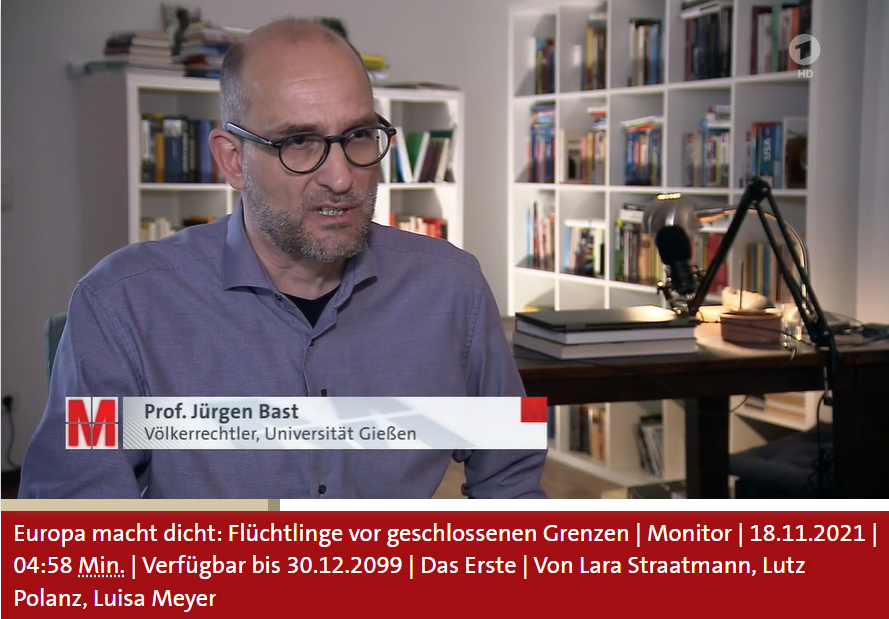
Norway: We must not forget those who drown
From Iran to Tyrkia, from Italy to France. To the coast of Karmøy: this is where the remains of the fifteen months old Kurdish refugee Artin were found this year.
His journey is a stark reminder that the emergence of other issues didn’t cancel the urgency of asylum. If anything, the opposite is true, according to UNHCR’s statistics released at the end of 2020 and right now, in mid-2021. COVID does not prevent problems, but solutions, so that an increasing number of the world’s 82,4 million who are forcibly displaced ‘found themselves in protracted and long lasting situations.’
Yet, those who work in refugee studies know better than ever that there are no ‘magic formulas’ available as solutions. Even UNHCR’s is relentlessly experimenting, by insisting with states on the necessity to guarantee resettlements quotas, support and assistance, but also by facilitating innovative information campaigns such as ‘telling the real stories’. The spread of fake news is indeed literally and variously lethal: it nourishes xenophobia and prejudices in destination countries; it furthers the interests of smugglers and other exploitative agents in countries of departure and crossing.
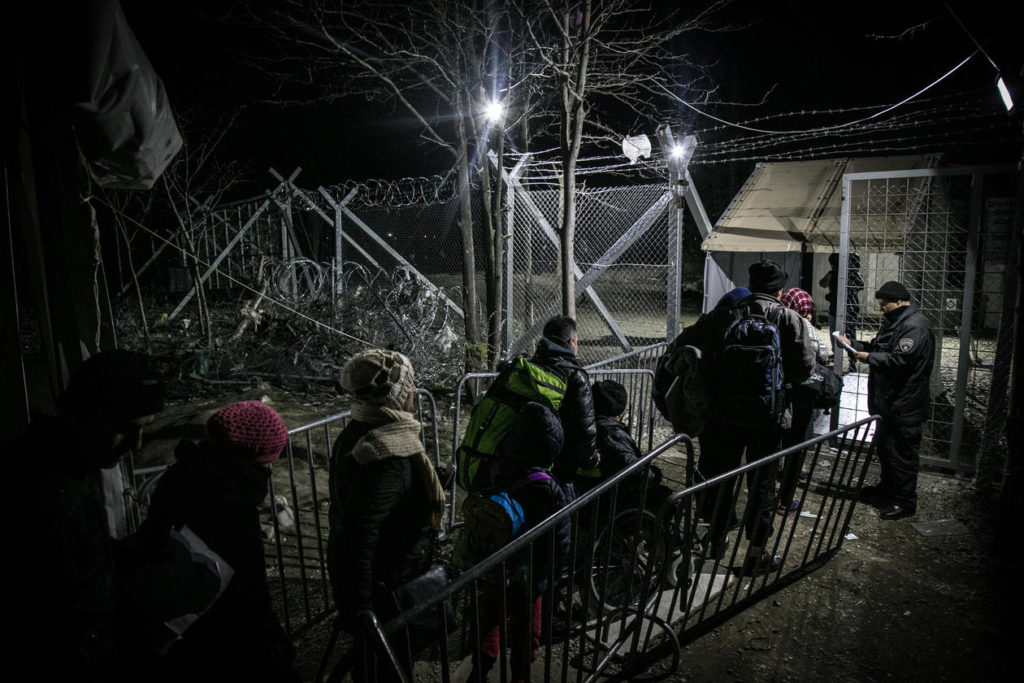
Consequently, media and public discourse have a prominent role to play in guaranteeing that protection is not forgotten as a side-effect of other, and no less relevant, issues. Academics, on their part, have a duty to ensure collaboratively that such dialogue is fact-checked and imbued with substance.
Yet even such efforts will not prove sufficient unless policy- and decision-makers at the highest levels get involved. The subsiding of the ‘crisis’ in 2016, was mostly due to the – controversial – pact with Turkey and to improvements in some contexts of departure, rather than to a comprehensive solution.
A European strategy is still lacking. The proposed New Pact over Migration and Asylum has certainly some potential, but it does not look like a qualitative leap in Europe’s border policy. It is also still uncertain whether it will be adopted and applied, and how. Furthermore, many European states seem reluctant to take these as priorities, except Italy and Spain who are forced to do so by the conditions at the borders with Libya and Morocco.
Even the controversial turn in Denmark’s asylum policy seems to have failed to bring back a substantial debate. Despite geographically distant from refugee crisis, Norway has certainly an important, constructive role to play as a humanitarian power, in line with Norway’s active and far-reaching international relations. Norway’s brilliantly successful candidature to the Security Council, including the display on ‘Norway’s contribution to the liberation of Africa’, was but a recent example and reminder of the country’s influence and popularity. Given such quality and depth of international engagements, Norway has a positive role to play in asylum also. Artin’s story has shown how far misery and despair can go. The best way to honor it is by showing that solidarity and hope can reach even further.
This is a revised and translate version of an op-ed that was printed in Bergens Tidende, a regional paper with close to 300 000 readers, by PROTECT researcher Dario Mazzola and Communications Coordinator Mari Lund Eide.
Norway: Global displacement reaches an all-time high as the Syrian war enters its 10th year
– We can suspect 2020 will not go down as the happiest year in human history. The IMF reports global GDP lost 9 trillion dollars: the equivalent of the economies of Japan and Germany. 1,6 billion informal workers, mostly in the global South, have been exposed to loss of livelihoods, says WTO. People prefer moving than starving: depending on how you define “a refugee”, this enters the counting or not, explains Dario Mazzola to the Norwegian newspaper Utrop in a recent interview about increasing global displacement.
The UNHCR report that 80 million people are currently displaced, the number includes refugees, asylum seekers, and internally displaced people. 34 million are children and 86% live in developing countries.
– Almost every year, we hit a new record number. Yet the point is not whether refugees are proportionally more many than after World War II. The point is that every flight is a tragedy, every lack of assistance a failure, every collective displacement a humanitarian disaster, says Mazzola.
The situation for refugees on the island of Lesvos has been described by PROTECT researchers Evgenia Iliadou and Theofanis Exadaktylos as a graveyard of human rights.
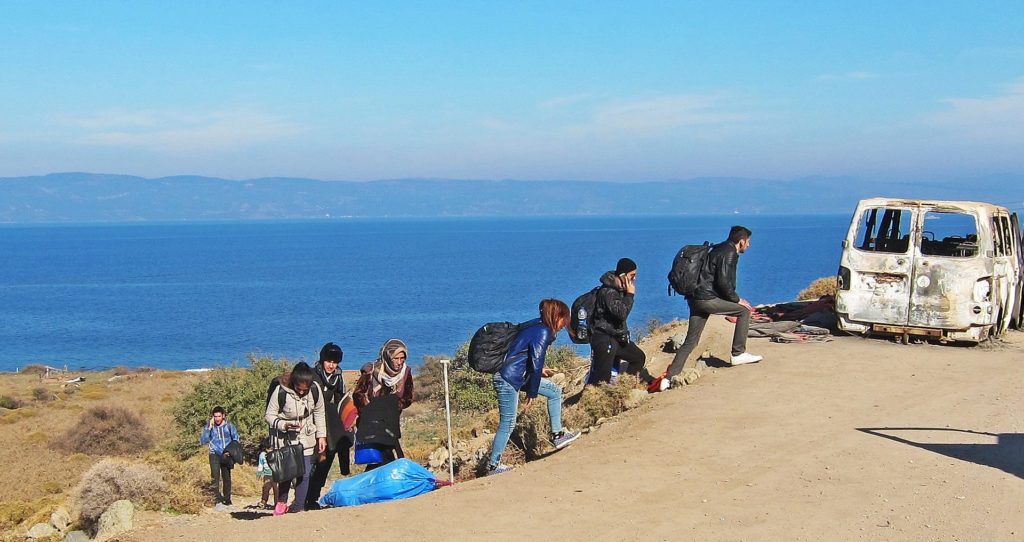
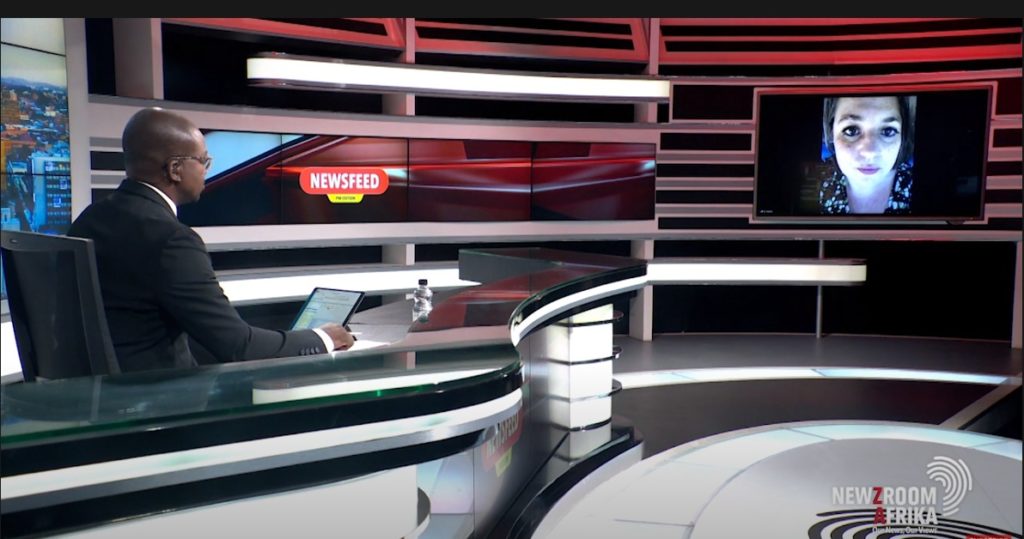
South Africa: How should governments deal with migration and Covid-19?
In a recent interview with the South African news station Newzroom Afrika, PROTECT researcher Jo Vearey, speaks about how the governments can deal with immigration during the Covid-19 pandemic. One of the solutions, argues Vearey, is to create better and more regional collaboration between African countries that share borders frequently crossed by migrating groups.
Vearey has also co-authored an op-ed in the Daily Maverick titled ‘Drones, dinghies and an army helicopter – why the state’s new toys won’t help South Africa’s response to Covid-19‘. In the co-ed, the authors write: “The government’s decision to focus on tracking, detaining and deporting migrants as they cross into South Africa ensures that their ‘illegal’ status and/or failure to secure the bona fide negative Covid-19 test certificates, currently required to enter into South Africa, is focused on at the expense of the many systemic challenges faced in accessing documentation – including Covid certificates.”
Photo: Newzroom Afrika
Norway: Challenges ahead for EU’s new asylum agreement
PROTECT’s project leader Hakan G. Sicakkan has been interviewed about the forthcoming European asylum pact by the largest Norwegian news provider, NRK.no.
In the article Sicakkan says that tensions within EU countries are currently on the rise. This will affect the success of the new pact, which according to Von der Leyen will have a ‘strong solidarity mechanism’ and take a ‘human approach’.
This might be a lofty goal, according to Sicakkan:
“Migration has been a challenging field for the EU to integrate from the very start. Countries want to be in control of their own borders, thus decide themselves who to let in and not”, says Sicakkan to NRK.
This is due to the fact that states’ policy outcomes on migration are closely connected to differences in their citizenship models:
“Eastern European countries like Hungary, Poland, the Czech Republic and Slovakia base their sense of national belonging on ethnicity, which often manifests itself in a stricter asylum policy”, explains Sicakkan in the article.
These differences will form the basis for the negotiations and outcome of the new EU pact.
Photo: Colourbox
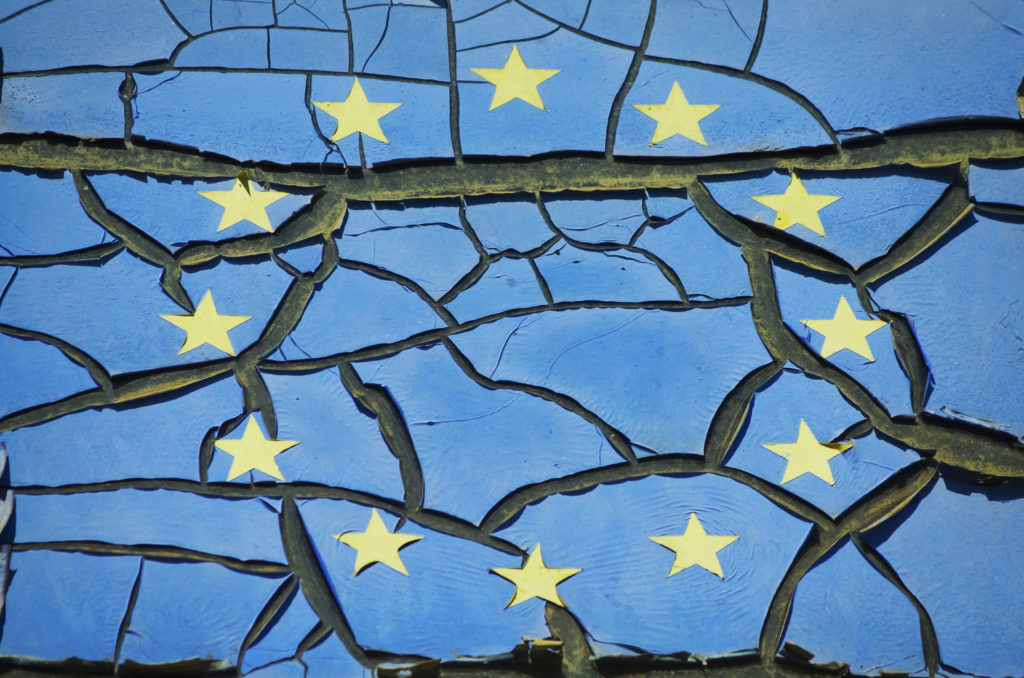
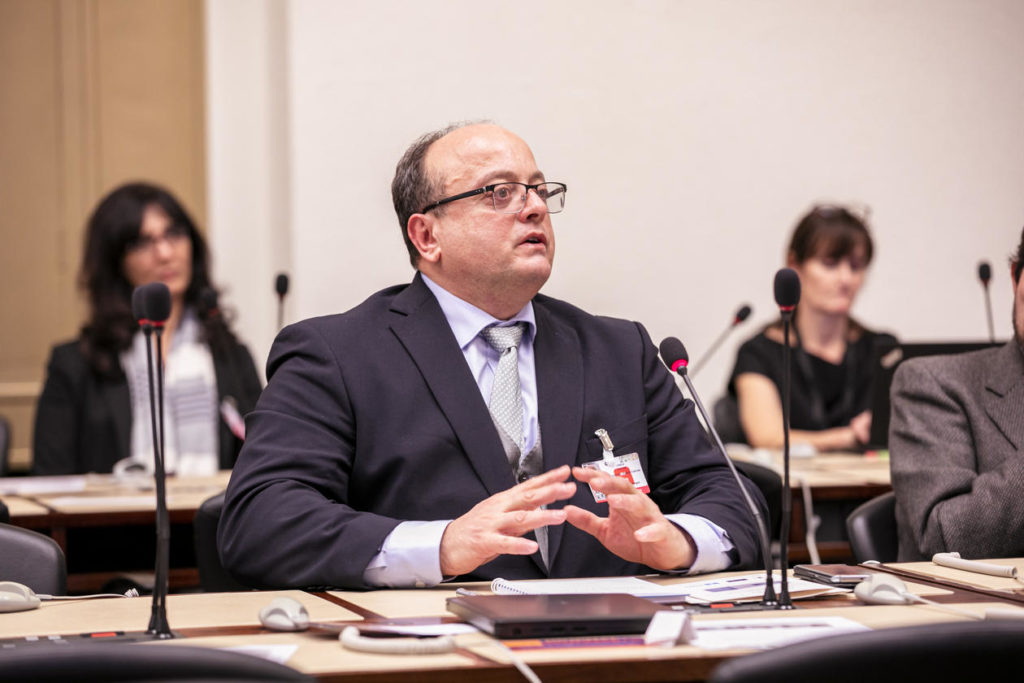
Norway: Promoting refugee protection in a turbulent political climate
The Norwegian multicultural newspaper Utrop writes about the launching of Protect in Brussels.
Protect’s project leader, Professor Hakan G. Sicakkan, explains that the initiation of Protect was motivated by concerns about the future of the right to international protection of refugees:
“Protect’s title expresses that we do believe that the right to international protection is under threat and must be protected, as we are currently experiencing a turbulent political climate surrounding asylum and refugee issues”, Sicakkan says.
Photo: Photo: UNHCR/Antoine Tardy
South Africa: Professor Jo Vearey on how the Covid-19 pandemic is affecting vulnerable groups in South Africa
Professor Vearey has made two written contributions to The Daily Maverick on the topic of migrants and the Corona pandemic: The Hypocrisy in the time of Covid-19 and Foreign Migrants must be included in Covid-19 response. She has also co-authored a piece on healthcare for migrants in South Africa, which was published in Bhekisisa Centre of Health Journalism.
In the podcasts, Monday Morning Meetings on Migration and #ForGood, Professor Vearey discusses responses to the pandemic in South Africa.
Professor Vearey has also been a guest on SABC News Unfiltered:
